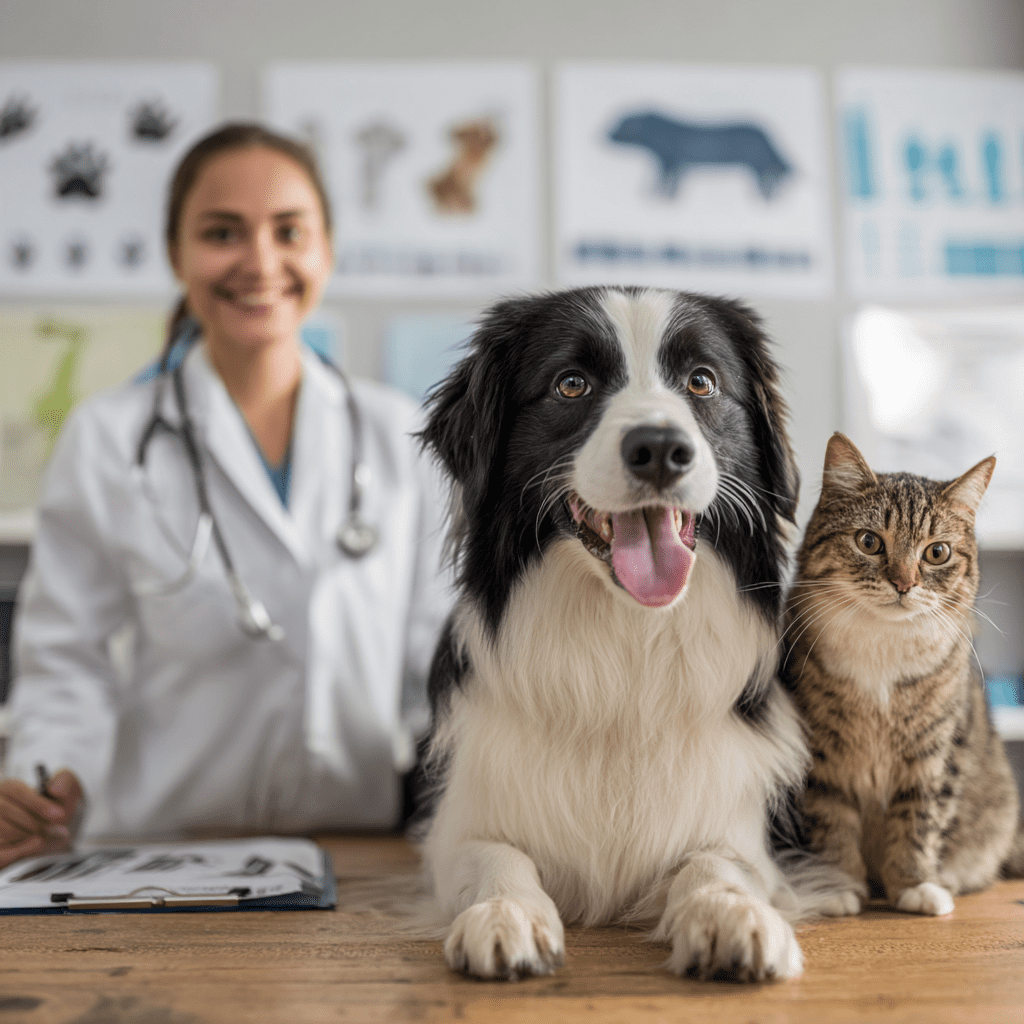5 Common Pet Health Problems and How to Prevent Them
As pet owners, we all want our furry companions to live long, healthy, and joyful lives. But just like us, pets can face a variety of health issues. Knowing the most common health problems and how to prevent them is essential for responsible pet ownership.
Whether you’re a first-time pet parent or a seasoned one, this guide will walk you through five of the most common pet health issues, what causes them, and what you can do to prevent them.
1. Dental Disease
🐾 What It Is:
Dental disease, particularly periodontal disease, is one of the most common health issues in dogs and cats. It begins with plaque buildup and can lead to infection, tooth loss, and systemic illnesses affecting the heart, liver, or kidneys.
🐾 Symptoms:
- Bad breath
- Red or bleeding gums
- Difficulty eating or chewing
- Excessive drooling
🐾 Prevention Tips:
- Brush your pet’s teeth regularly using pet-safe toothpaste.
- Provide dental chews or toys designed to reduce plaque.
- Schedule professional dental cleanings annually.
- Feed a diet that supports dental health.
2. Obesity
🐾 What It Is:
Obesity affects over 50% of household pets in the U.S. It can shorten your pet’s lifespan and lead to other complications like diabetes, joint problems, and heart disease.
🐾 Symptoms:
- Noticeable weight gain
- Difficulty moving or reluctance to exercise
- Labored breathing
- Inability to feel the ribs easily
🐾 Prevention Tips:
- Follow recommended portion sizes.
- Limit treats and avoid table scraps.
- Provide daily exercise (walks, playtime, training).
- Use interactive toys to keep pets mentally and physically stimulated.
- Consult your vet for an appropriate weight-loss diet if needed.
3. Fleas, Ticks, and Parasites
🐾 What It Is:
Fleas, ticks, heartworms, and intestinal parasites can infest your pet and lead to irritation, anemia, or severe internal damage. Some parasites can also be transmitted to humans (zoonotic diseases).
🐾 Symptoms:
- Excessive scratching or biting at skin
- Visible parasites or eggs in fur or stool
- Lethargy or weight loss
- Diarrhea or vomiting
🐾 Prevention Tips:
- Administer monthly flea, tick, and heartworm prevention medications.
- Keep your yard trimmed and clean to reduce pest exposure.
- Bathe and groom your pets regularly.
- Get annual fecal exams and deworming from your vet.
4. Ear Infections
🐾 What It Is:
Ear infections are especially common in dogs with floppy ears or pets that swim frequently. They can result from bacteria, yeast, mites, allergies, or foreign bodies like grass seeds.
🐾 Symptoms:
- Head shaking or tilting
- Scratching or rubbing the ears
- Red, inflamed, or smelly ears
- Discharge from the ear canal
🐾 Prevention Tips:
- Clean your pet’s ears regularly using vet-approved solutions.
- Dry ears thoroughly after bathing or swimming.
- Address underlying allergies or sensitivities.
- Monitor for signs and treat infections early.
5. Urinary Tract Infections (UTIs) and Bladder Issues

🐾 What It Is:
UTIs and bladder stones are common, especially in female dogs and male cats. They can cause discomfort and lead to more serious kidney or urinary tract problems if untreated.
🐾 Symptoms:
- Frequent urination or accidents indoors
- Straining or crying while urinating
- Blood in urine
- Licking the genital area excessively
🐾 Prevention Tips:
- Provide constant access to fresh water.
- Feed a vet-recommended diet to maintain urinary health.
- Ensure your pet gets regular bathroom breaks.
- Schedule annual wellness exams to catch early signs.
🐾 General Prevention Tips for All Pet Owners
Beyond the specific issues above, there are general practices every pet parent should follow to maintain overall health:
✅ 1. Regular Vet Checkups
Annual (or semi-annual for seniors) vet visits help catch problems early and provide preventive care like vaccines and lab work.
✅ 2. Maintain a Balanced Diet
Choose high-quality, vet-approved pet food. Avoid feeding your pets human food without knowing if it’s safe.
✅ 3. Exercise & Enrichment
Regular physical and mental stimulation reduces stress, supports joint health, and prevents obesity.
✅ 4. Keep Vaccinations and Parasite Preventives Up-to-Date
Make sure your pet is protected from deadly diseases and external/internal parasites.
✅ 5. Spaying/Neutering
This not only prevents unwanted litters but also reduces the risk of certain cancers and behavioral issues.
❤️ Final Thoughts
Our pets rely on us for everything — including their health. By learning about the most common pet health problems and how to prevent them, you’re ensuring that your furry family member lives a long, vibrant, and happy life.
Prevention is the best medicine, and a proactive approach can save you time, money, and most importantly — it can save your pet unnecessary pain or illness.
